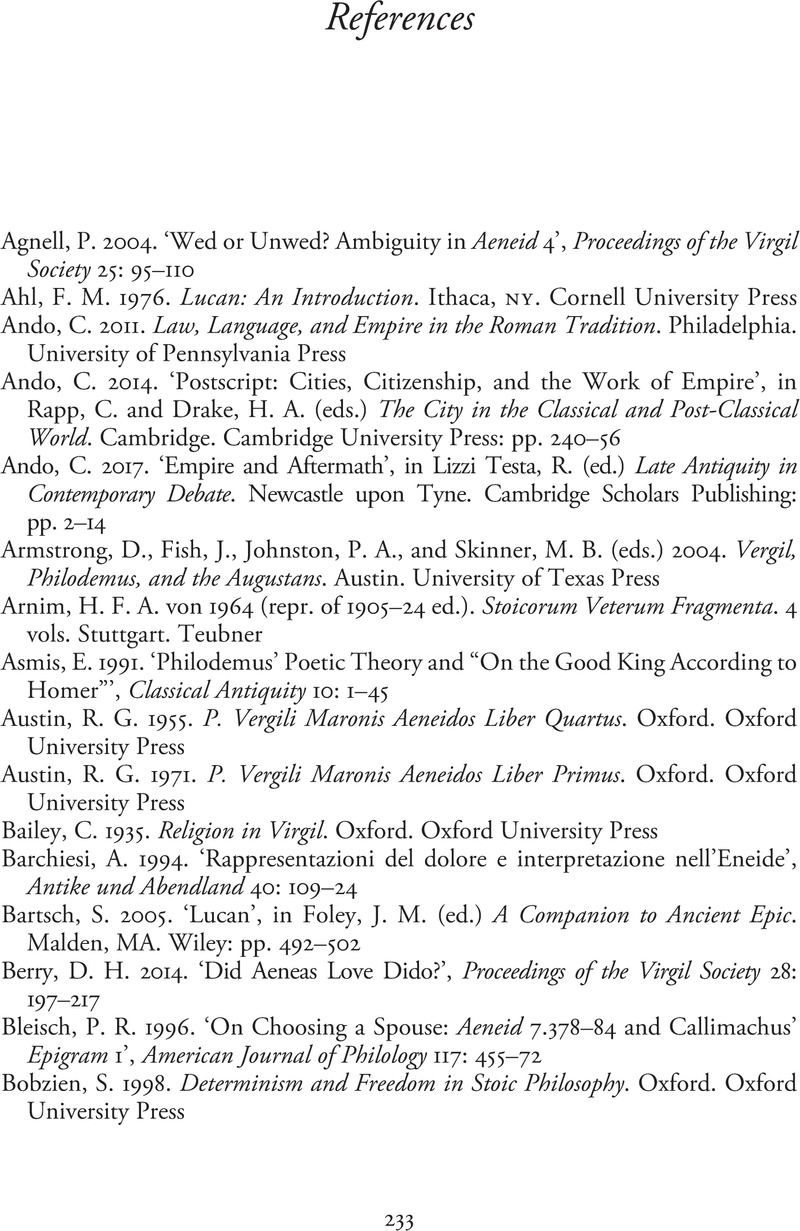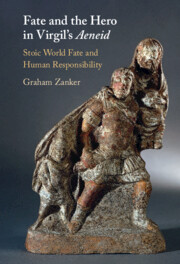Book contents
- Fate and the Hero in Virgil’s Aeneid
- Fate and the Hero in Virgil’s Aeneid
- Copyright page
- Dedication
- Contents
- Preface
- Abbreviations
- Introduction
- Chapter 1 Stoic World Fate and Virgil’s Aeneid
- Chapter 2 Fate and the Human Responsibility of Dido and Aeneas in Aeneid 4: A Case Study
- Chapter 3 Stoic World Fate and the Gods of the Aeneid
- Chapter 4 Stoic World Fate and the Humans of the Aeneid
- Chapter 5 Stoic World Fate and Roman Imperium in the Aeneid: Tragedy and Didacticism
- Book part
- References
- Index Locorum
- Index
- References
References
Published online by Cambridge University Press: 06 April 2023
- Fate and the Hero in Virgil’s Aeneid
- Fate and the Hero in Virgil’s Aeneid
- Copyright page
- Dedication
- Contents
- Preface
- Abbreviations
- Introduction
- Chapter 1 Stoic World Fate and Virgil’s Aeneid
- Chapter 2 Fate and the Human Responsibility of Dido and Aeneas in Aeneid 4: A Case Study
- Chapter 3 Stoic World Fate and the Gods of the Aeneid
- Chapter 4 Stoic World Fate and the Humans of the Aeneid
- Chapter 5 Stoic World Fate and Roman Imperium in the Aeneid: Tragedy and Didacticism
- Book part
- References
- Index Locorum
- Index
- References
Summary

- Type
- Chapter
- Information
- Fate and the Hero in Virgil's AeneidStoic World Fate and Human Responsibility, pp. 233 - 244Publisher: Cambridge University PressPrint publication year: 2023

